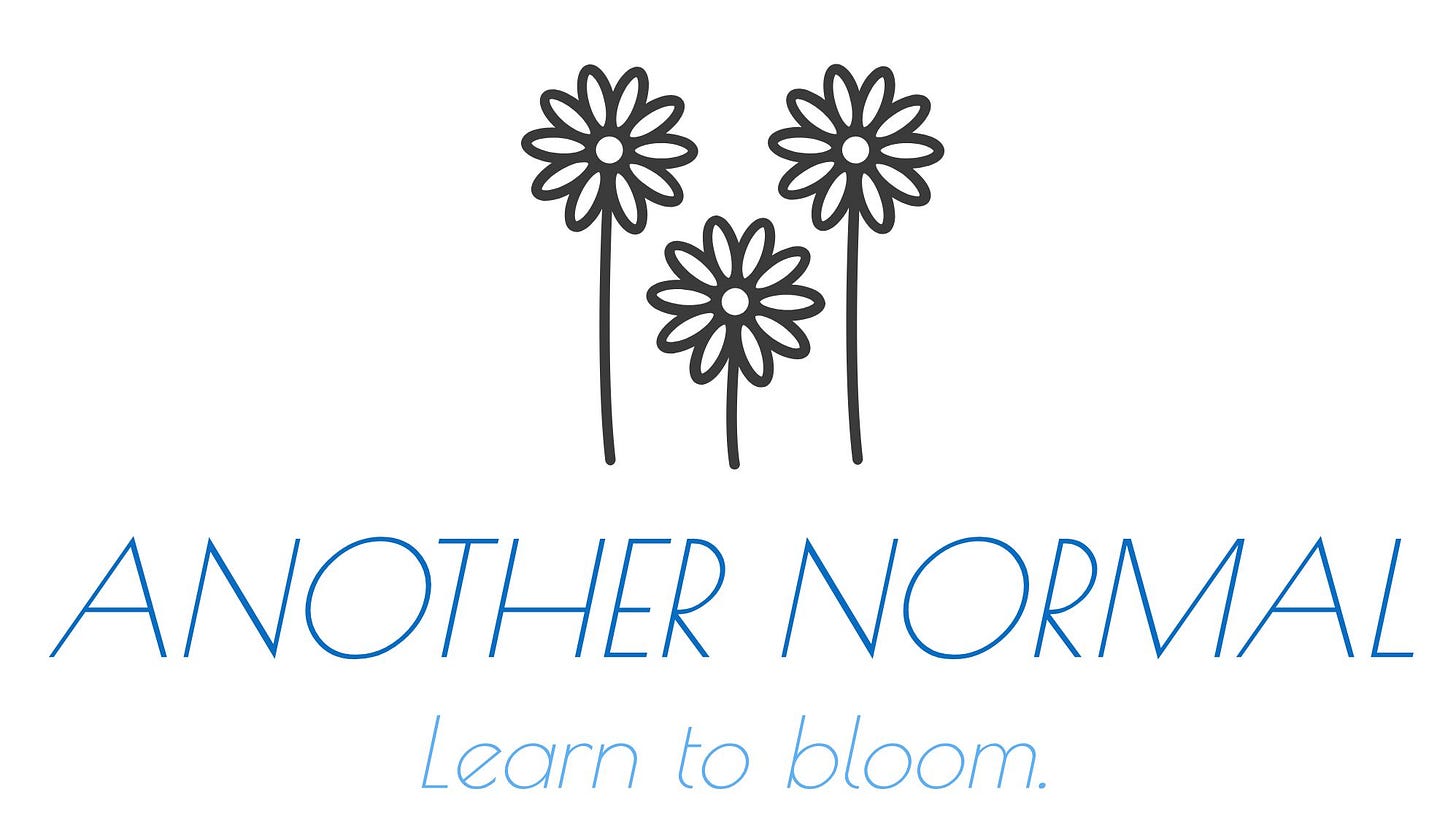Taboo Talks
Volume 27
This e-newsletter is devoted to family members and caregivers committed to helping young adults with disabilities bloom and grow. Subscribers get 24/7 access to the resources and information in the archive and are able to comment and share information you find valuable with others. Each issue is designed to inform and empower, expanding your knowledge, resources and skills to deal with whatever “normal” looks like for you and those you love.
Engagement makes this work worth doing, so please comment, share and let me know what you like and dislike — and what you want to learn more about, too. Subscribing is free, but I’ll take a “heart” anytime if the spirit moves you. This helps others find Another Normal online (always a good thing).
Expand your perspective, gain knowledge, discover new resources. Learn to bloom. Thanks for being here.
Parents aren’t sex education experts just because they are parents.
—Pepper Schwartz
Today’s issue focuses on sex, which is often considered a taboo topic by parents, many of whom simply don’t have the bandwidth to acknowledge that our children are fast-becoming adults. (I get it, believe me.) Unfortunately, many school districts don’t offer appropriate sex-education for students with intellectual and developmental disabilities (I/DD). And parents often don’t possess a natural affinity for taking on this added responsibility. So, here’s information on the subject, which I hope you’ll find helpful and thought-provoking. Join our free upcoming webinar to learn even more.
Sexuality is an important part of being human. It's how we develop relationships and build our families. And it's often scary for parents to think about — especially if our children have developmental disabilities.
According to Sorah Stein, MA, BCBA and a certified sexuality educator, “People with intellectual and developmental disabilities (I/DD) are sexual beings and have sexual needs and desires just like all people. Their intellectual functioning does not preclude them from having sexual feelings for others, wanting close relationships, wanting to get married, or having a family."
Not surprisingly, young adults and adolescents with I/DD can experience a host of challenges related to sexuality. They need appropriate education on the subject, as well as self-advocacy skills to help them make healthy decisions about sexuality. They need to have their sexual thoughts, feelings and needs recognized. And they need to learn how to include them as part of their adult lives.
Equally important is that we must educate young adults with developmental disabilities about sexuality so they can protect themselves against abuse. It’s scary, but it’s real. And parents can have a positive impact, especially if they become more comfortable with this topic.
Time for training.
Just as we learned how to help our children with disabilities improve their speech, fine motor and social skills, so can parents and guardians enhance a young person’s ability to navigate sexual feelings. To help facilitate this, I’m hosting a a free webinar about Sexuality and Developmental Disabilities on Wednesday, February 17th, from 7:00-8:15pm via Zoom. This enlightening and empowering event will be led by Elizabeth Sola, MA, a long-time educator and advisory board member with Elevatus Training and a parent to someone on the autism spectrum. Please join us to:
Examine barriers to talking about sexuality;
Gain helpful tips to become more comfortable discussing this sensitive subject with young people who have I/DD;
Learn what topics to cover and when;
Get answers to your questions about how to best serve young adults in this aspect of their growth and development;
And acquire skills to communicate comfortably and effectively about sexuality with young and grown children with I/DD.
Around the globe.
Despite many myths surrounding this sensitive subject, sex among people with disabilities is alive and well around the world. And resources for talking about it are thriving, such as this online Q&A platform out of the United Kingdom. In China, self-advocates are using poetry events to help increase dialogue and understanding about sex for people with disabilities. And researchers here in the U.S. are even looking at whether artificial intelligence can be helpful in creating “automated intimacy.”
As Nancy Jecker of the University of Washington’s School of Medicine explains, “The ability to be sexual at any age relates to your ability to have a life. Not just to survive, but to have a life, and do things that have value.” As a parent, I find this thought a bit terrifying; however, I know that increasing my understanding of this is important for my son and myself. How do you feel?
Additional reading.
For those looking to learn more on this subject, check out these books: Sexuality: Your Sons and Daughters with Intellectual Disabilities by Karin Melberg Schwier and David Hingsburger and The Facts of Life … and More: Sexuality Education for People with Intellectual Disabilities by Leslie Walker-Hirsch. It’s Perfectly Normal is also a good resource for children entering puberty. (Note: Some illustrations may not be appropriate for all readers.)




Thanks so much, Jeanne. I could not agree more. We can all expand our knowledge and comfort levels. Appreciate your enthusiasm and encouragement.
This is such an important topic and not one easily discussed. I look forward to the webinar!